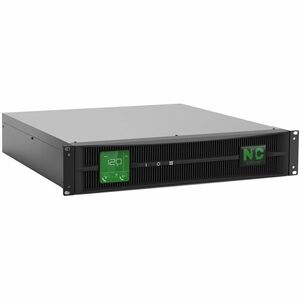Introduction
Ensuring a reliable and uninterrupted power supply in critical infrastructures such as schools, retail stores, and the hospitality industry is paramount. Uninterruptible Power Supply (UPS) systems, particularly those utilizing lithium-ion batteries, play a crucial role in sustaining these operations. However, improper storage of these systems can lead to substantial issues. At N1C, we specialize in lithium-ion battery technology and are committed to helping you maximize the design life of your UPS systems. In this blog, we aim to educate IT directors on the best practices for storing lithium-ion UPS systems.
Why Proper Storage for Lithium-Ion UPS Systems Matters
Proper storage of lithium-ion UPS systems is vital for maintaining their efficiency and extending their lifespan. Improper storage can lead to several risks, including decreased battery life and potential safety hazards, such as overheating and fires. For IT directors, stable power is indispensable for operations like data management, point-of-sale transactions, and guest services. Therefore, knowing how to store lithium-ion batteries correctly is essential to prevent these issues and ensure consistent performance.
Best Practices for Storing Lithium-Ion UPS Systems
Ideal Charge Levels
One of the most crucial aspects of storing lithium-ion UPS systems is maintaining the optimal charge level. It is generally recommended to store batteries at around 40-60% charge. Storing them fully charged or fully discharged can stress the battery, significantly reducing its life span. By keeping batteries partially charged, you minimize the risk of battery degradation and ensure they are ready for use when needed.
Recharging Frequency
Another key practice is to regularly check and recharge the batteries to prevent deep discharge. It is advisable to recharge stored batteries every three to six months. This routine maintenance helps keep the batteries in good condition and prevents any deterioration that can occur if they are left unused for extended periods.
Safe Storage Locations
Choosing the right location for storing lithium-ion UPS systems is crucial. Avoid storing them near heat sources or in damp areas, as extreme temperatures and high humidity can damage the batteries. The ideal storage environment should be cool and dry, with a temperature range of 20–25°C (68–77°F) and relative humidity below 50%. Additionally, ensure that the storage area is well-ventilated and free from direct sunlight.
Common Mistakes to Avoid
Storage Pitfalls
Fully Discharged Batteries: Storing batteries when they are completely discharged can trigger a state of deep discharge, making them difficult or impossible to recharge.
Extreme Temperatures: Exposing batteries to very high or very low temperatures can cause thermal runaway or freezing, both of which are detrimental to battery health.
Ignoring Recharging Intervals: Failing to check and recharge batteries at regular intervals can lead to deep discharge, reducing their overall lifespan.
Improper Ventilation: Storing batteries in an enclosed, non-ventilated space can lead to overheating, especially in warmer conditions.
Other Factors That Affect UPS Lithium-ion Battery Lifespan
While proper storage practices are essential, it's also important to understand the main factors that directly impact the lifespan of lithium-ion batteries in UPS systems. Addressing these factors proactively can help in extending the overall battery life, ensuring long-term reliability and efficiency.
Temperature
Temperature plays a critical role in the health and longevity of lithium-ion batteries. Exposure to extreme temperatures—both high and low—can significantly reduce battery life. High temperatures accelerate the chemical reactions within the battery, leading to faster degradation, while low temperatures can slow down these reactions and reduce the battery's efficiency.
Charge Cycles
The number of charge and discharge cycles a lithium-ion battery undergoes directly affects its lifespan. Each cycle contributes to the wear and tear of the battery's internal components. Although lithium-ion batteries are designed to handle a higher number of cycles compared to other battery types, they still have a finite lifecycle. Limiting the depth of discharge and avoiding complete discharges can help prolong the battery's lifespan.
State of Charge (SoC)
Maintaining the battery’s state of charge between 20% and 80% can significantly enhance its lifespan. Storing the battery at a high state of charge (close to 100%) or a very low state of charge (close to 0%) can stress the battery cells and accelerate degradation. Therefore, it's advisable to keep the battery at a moderate charge level when not in active use.
Charging Rate
The speed at which a battery is charged also influences its longevity. Fast charging generates more heat and can lead to increased wear on the battery cells, shortening the battery’s effective lifespan. Using a slower, controlled charging process minimizes heat generation and stress on the battery, thereby extending its life.
Quality of Battery Management System (BMS)
A high-quality Battery Management System (BMS) is crucial for monitoring and managing the health of lithium-ion batteries. The BMS oversees various parameters, including voltage, current, temperature, and state of charge. A reliable BMS helps prevent overcharging, deep discharging, and thermal runaway, contributing to the overall longevity of the battery.
Incorporating an understanding of these factors, along with proper storage practices, can further enhance the performance and lifespan of your lithium-ion UPS systems. For IT directors and facility managers, prioritizing these elements will not only lead to more reliable power supply solutions but also offer significant cost savings over time.
Conclusion
Proper storage of lithium-ion UPS systems is fundamental to preserving their battery life and ensuring safety. IT directors must adhere to guidelines on optimal charge levels, recharging frequency, and safe storage conditions to avoid common mistakes that can lead to severe consequences. N1 Critical Technologies stands as your reliable partner, offering unparalleled expertise and support in managing your power solutions efficiently.
Further Reading and Resources
For more information on lithium-ion UPS systems and best storage practices, consider checking out the N1 Critical Technologies UPS Help Page.
For more information or customized solutions tailored to your needs, visit the N1C website or contact us today.



